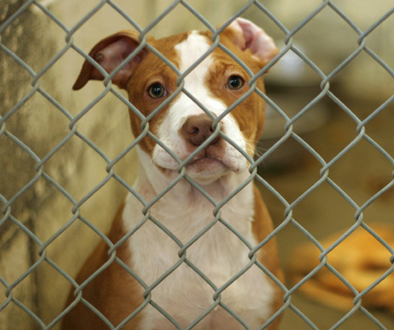Let’s Make Shelter Pets a Memory, not a Mascot
By: Patti Strand Date: 04/4/2013 Category: | Animal Legislation | Canine Issues | Rescue |
Colorado’s state senators will soon consider Senate Bill 13-201, a well-intentioned piece of legislation aimed at making Colorado’s shelter animals the state’s pet symbol. Raising public awareness of shelter pets is a laudable goal, but using the state symbol is the wrong vehicle for achieving it.
State symbols should not be political statements that divide people into factions; they should represent widely admired, commonly recognized emblems associated with the state; ones that celebrate resources, natural beauty, industry, or regional history. Citizens treasure state emblems because they are native to the area and instill a sense of pride in their local identity. Thus, Colorado’s animal symbol is the Rocky Mountain Bighorn Sheep, and the state sports are snowboarding and snow skiing. A few states recognize a “state dog,” but those that do give the honor to a breed that is special to their citizens. For example, Virginia’s state dog is the American Foxhound, a tribute to George Washington, while Massachusetts’ dog is the home-grown Boston Terrier.
 Shelter pets, on the other hand, are ubiquitous. They exist in all states and have no specific Colorado identity. Moreover, shelter pets do not represent a particular type of pet, but a particular source of pets. And in Colorado, a large number of shelter dogs are not even native to the state but imported from other states (and in some cases from other countries), to fill the state’s demand for dogs.
Shelter pets, on the other hand, are ubiquitous. They exist in all states and have no specific Colorado identity. Moreover, shelter pets do not represent a particular type of pet, but a particular source of pets. And in Colorado, a large number of shelter dogs are not even native to the state but imported from other states (and in some cases from other countries), to fill the state’s demand for dogs.
Over the course of the last decade, dog overpopulation ended in many parts of the US, causing some shelters to abandon and replace their traditional mission of caring for and finding homes for local pets, with importing pets for the local pet marketplace. Colorado has been a leader in this trend: according to the Colorado Department of Agriculture records, the state’s shelters and rescues imported more than 13,000 dogs for adoption during 2011 alone, displacing local Colorado sources, including native shelter dogs. SB13-201 would not only elevate, but endorse and codify this highly questionable practice.
Broad-scale, unregulated pet importation poses potential public health risks from disease and parasites, monopolizes the marketplace, represents a largely unregulated and underground economy, and is national in scope and growing. A 2006 CDC report estimated that 199,000 dogs entered the US from Mexico that year alone, and there is mounting evidence that the practice has expanded significantly since then.
But that’s not all. The seal of approval provided by SB 13-201 will not only endorse importation of pets from other states, territories, and nations into Colorado, it will also provide a “high five” for a plan that replaces a sound, well-developed pet selection process with an unrestrained marketing plan for shelter dog adoption.
Experts know that successful pet relationships require both emotion and reason. The best matches occur when acquisition is preceded by careful research of species and individual animal traits; and when individuals have realistic expectations of animal behavior, training, and care. Behaviorists, trainers, veterinarians, and animal breeders have filled books, magazines, newspaper columns, and electronic media with advice, hints, and details to help families choose a pet that meets their emotional and lifestyle needs. Those who downplay this compendium of knowledge and seek to replace it with emotional marketing appeals elevating shelter dogs above all other sources mislead consumers – no matter how well-meaning they might be.
Thoughtful pet selection enriches the breadth and depth of the human-animal bond. Potential pet owners who choose a puppy or adult dog that is healthy, trainable (or already trained), and capable of fitting the family dynamic are more likely to develop an enduring and rewarding relationship than those who make snap decisions based on an emotional appeal. Indeed, numerous studies have shown that dogs adopted from shelters are at risk of being relinquished yet again when their behavior problems are not resolved.
There are good reasons to get a dog from a shelter. And there’s no doubt that many shelters do an admirable job of placing unwanted dogs and cats into new homes. But the bottom line is that no one source for pets is best for everyone. Colorado lawmakers should not signify that there is by making one source the state symbol. Celebrate the people involved in animal rescue and shelter work who dedicate their lives to saving lives, who come up with innovative ideas to find permanent homes for animals. Celebrate responsible pet owners. But don’t turn a social problem into a celebration. We should be working to make shelter pets a memory, not a mascot.
About The Author
All Authors Of This Article: | Patti Strand |











